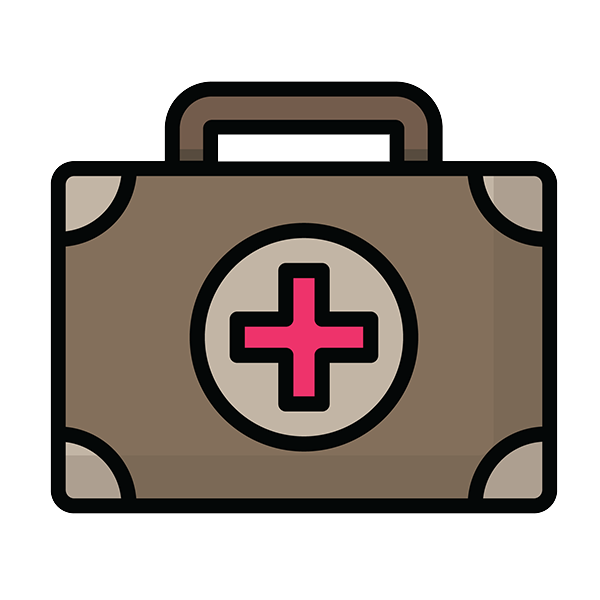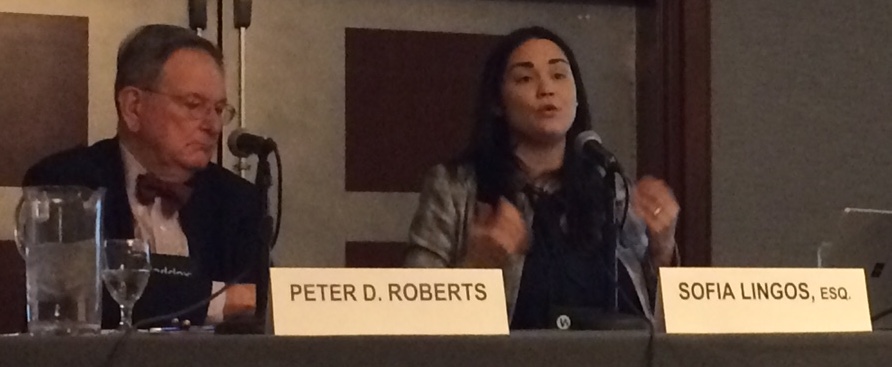Solos and small firms need to prepare for death and disaster

Image from Shutterstock.
During a Thursday morning ABA Techshow panel, “Planning for Tomorrow, Today,” Peter Roberts, a private practice management consultant from Washington state, said that succession planning starts with hiring practices.
“Who are your colleagues?” he asked. “Who are the lawyers in your firm who can assume your mantel? That’s the first question you have to ask yourself.”
Roberts offered several factors that solo practitioners and small firms should consider as they evaluate the future leadership of their firms, including:
• Is the firm educating all lawyers about the economics of the law practice?
• Is the firm fostering an entrepreneurial mindset in the lawyers?
• Are the lawyers able to participate in some aspect of management?
• Are the lawyers contributing to the firm’s culture and values?
• Are the partners held accountable for the transitions of clients?
Roberts pointed out that the transition of clients is one of the most important parts of a succession plan.
“This is a process, and it starts, frankly, with bringing the younger attorney to lunch with the client at an appropriate time,” he said. “It could be a business meeting dealing with a routine issue for the client, or it could be a social meeting, introducing the associate to the client. Watch the dynamic between the associate and the client. What is the chemistry there?”
If the client and the younger attorney don’t have an instant connection, Roberts said, it’s a good indication that the managing partner or practice leader should look for other candidates to take on that client.
Roberts told solo practitioners that they should prepare for several immediate issues—including prolonged absence, disability and death—in their succession plans.
He suggested that they name an assisting attorney who can manage their practice in the event they become incapacitated. Several criteria, including practice area, age, availability, trustworthiness and willingness, should be considered when selecting this attorney.
Roberts also recommended that solo practitioners formalize the relationship with a formal agreement that also specifies who can access their trust account.
“If you have a solo attorney who is incapacitated, clients want their money out of the trust account in order to find another attorney and move on,” he said. “So planning ahead and ensuring that trust account hurdle can be circumvented in some way is key to the solo practitioner.”
Sofia Lingos, the founding and managing attorney at Trident Legal, which provides transactional legal services to small businesses and startups, discussed the importance of business continuity plans, contending that law firms don’t plan for short-term problems as often as they should.
She referred to the significance of ABA Formal Opinion 482, which outlines ethical obligations related to natural disasters, which could include a fire or flood.
The ABA Model Rules of Professional Conduct also come into play. She noted that Model Rule 1.4 requires attorneys to take reasonable steps to communicate with clients after a disaster, while Model Rule 1.1 requires attorneys to develop sufficient competence in technology to meet their obligations. Additionally, Model Rule 1.15 requires attorneys to protect trust accounts, documents and property they are holding for clients. Model Rule 5.5 limits practice by attorneys displaced by a disaster, and Model Rules 7.1 through 7.3 limit attorney advertising to disaster victims.
Lingos recommended that solo and small firm attorneys start with a disaster preparation plan, and that they enlist everyone in their office, including staff and new employees, to be a part of that plan.
“You are going to test it, but you are also going to need to train everyone on it, to make sure that it is going to work, ” she said. “This is so important because when these plans go into place, they need to happen very quickly. “
Lingos suggested that attorneys create business continuity plans that follow the ABA Model Rules and carry their practice forward after a disaster. The plan should be saved in the cloud and backed up to other areas, she said, but it should also be printed and stored in a safe, easy-to-access location.
“Guess what happens sometimes when a disaster happens?” Lingos said. “You can’t get online. I am the biggest proponent of being paperless, but we’re talking about what is going to make the most sense.”
She also suggested that they be properly insured for all situations. This includes flood, earthquake, business interruption and property insurance.
“You need to figure out how and what insurance you need to protect you,” Lingos said. “Insurance, at the end of the day, will cover you and your recovery from a financial standpoint.”
 Peter Roberts, a private practice management consultant from Washington state, and Sofia Lingos, the founding and managing attorney at Trident Legal, discuss “Planning for Tomorrow, Today” on Thursday at the ABA Techshow in Chicago. Photo by Amanda Robert.
Peter Roberts, a private practice management consultant from Washington state, and Sofia Lingos, the founding and managing attorney at Trident Legal, discuss “Planning for Tomorrow, Today” on Thursday at the ABA Techshow in Chicago. Photo by Amanda Robert.
Follow along with our full coverage of ABA Techshow 2019.



